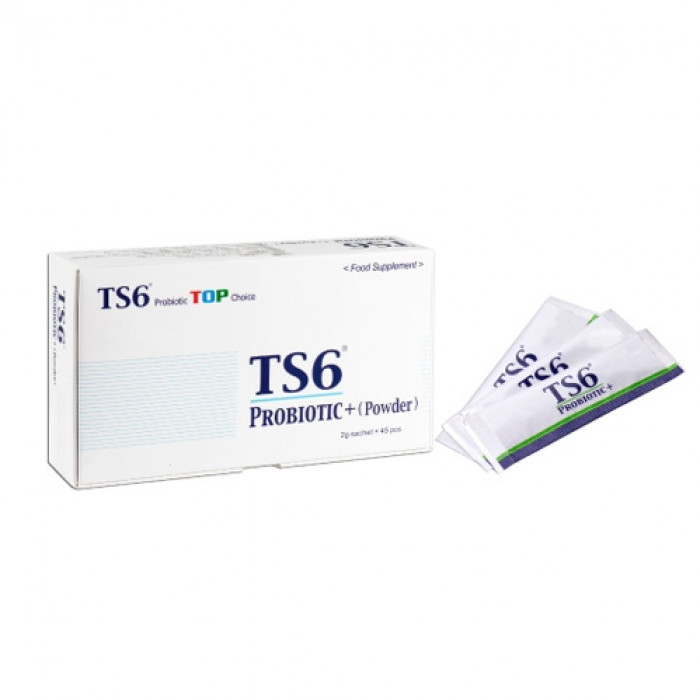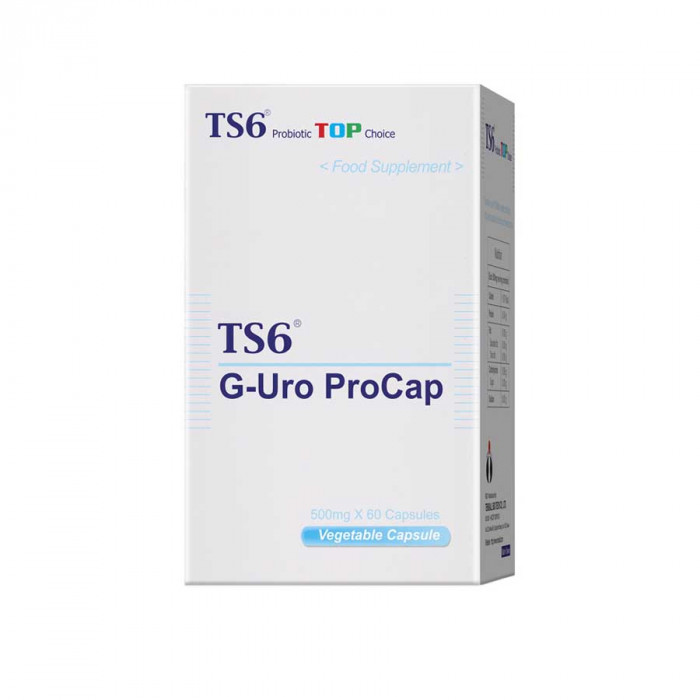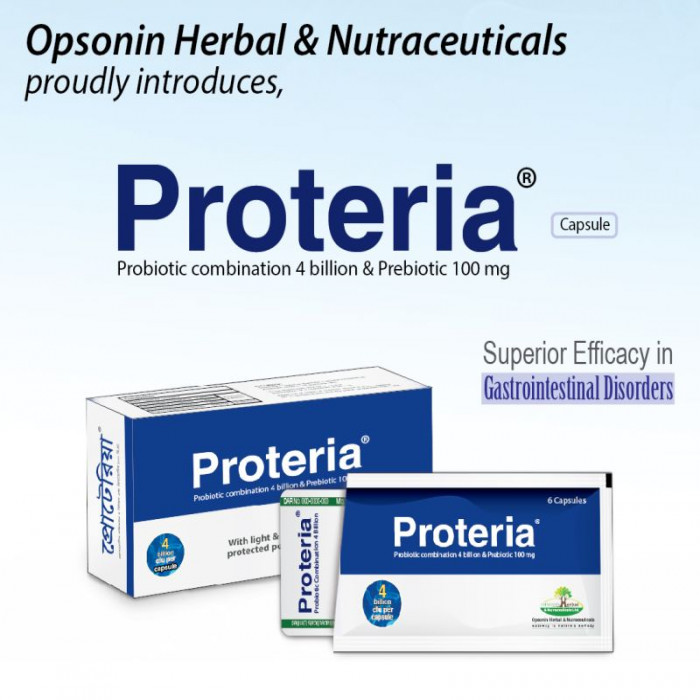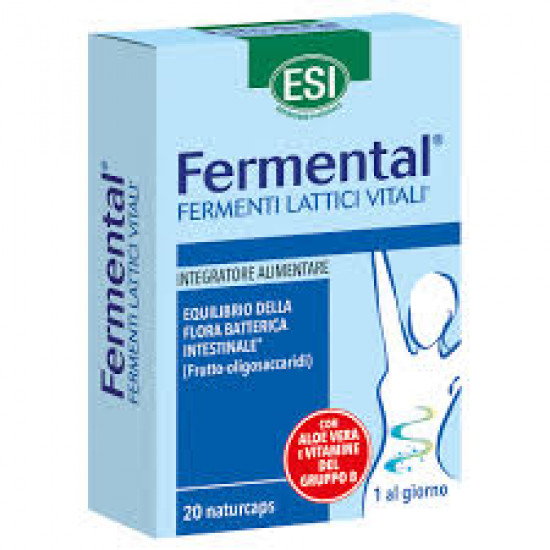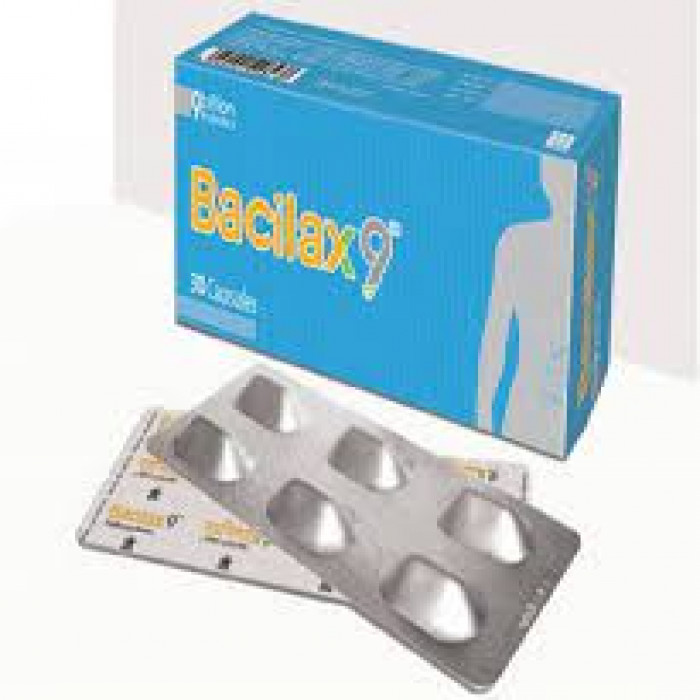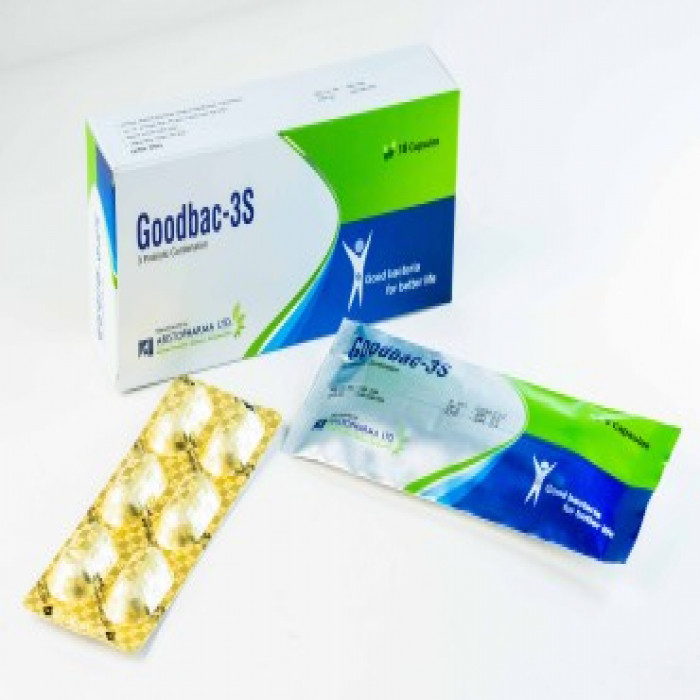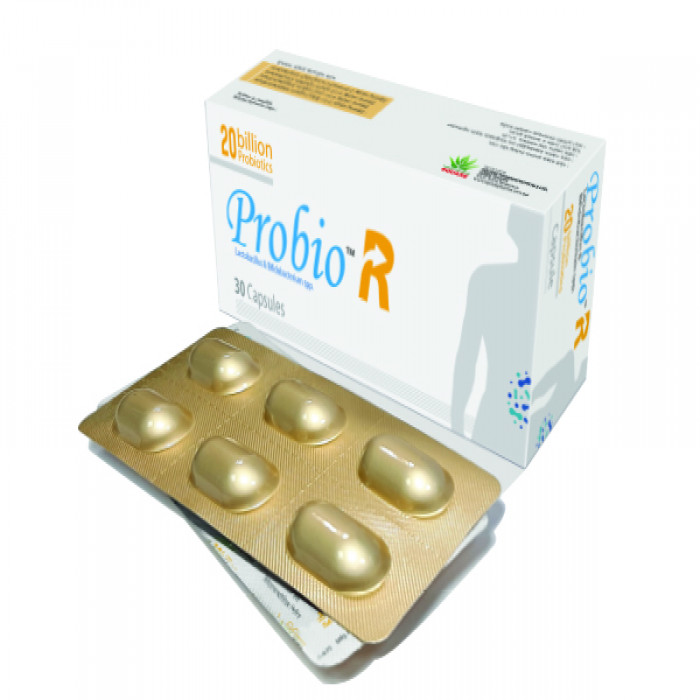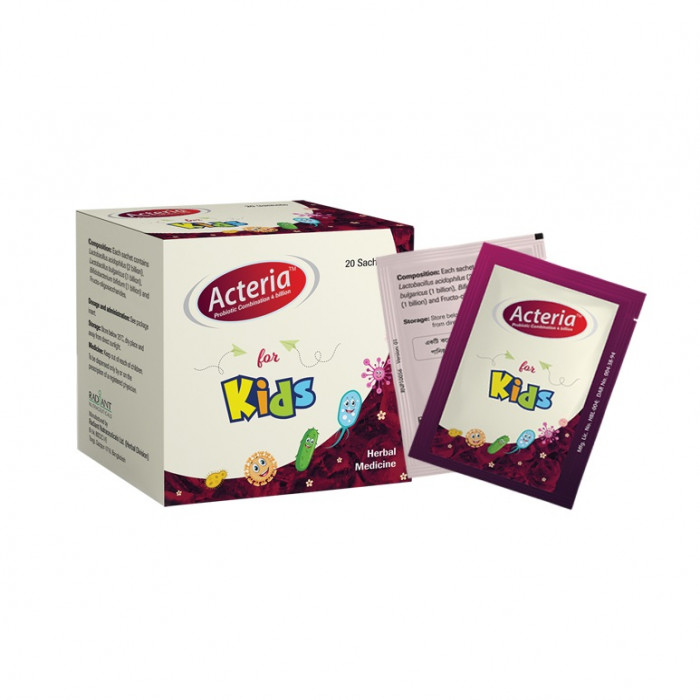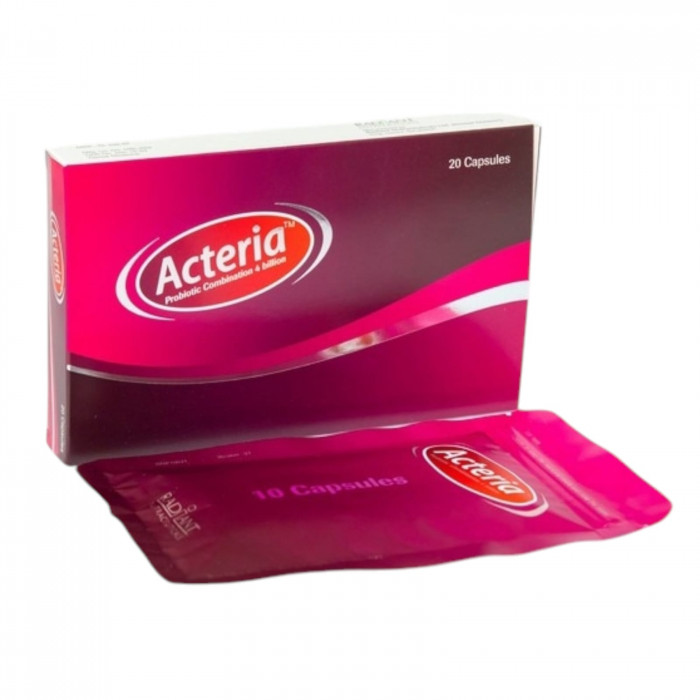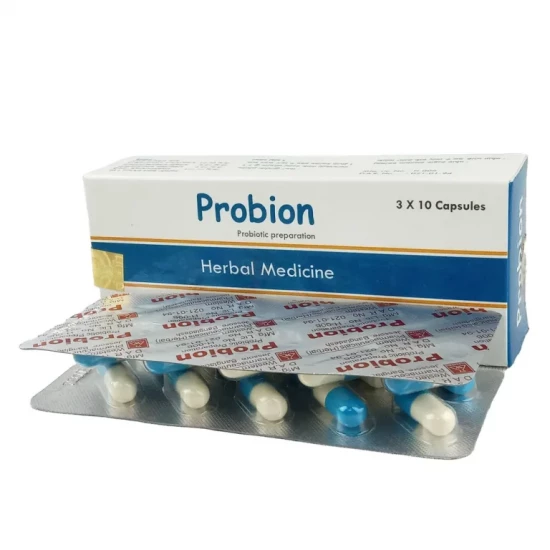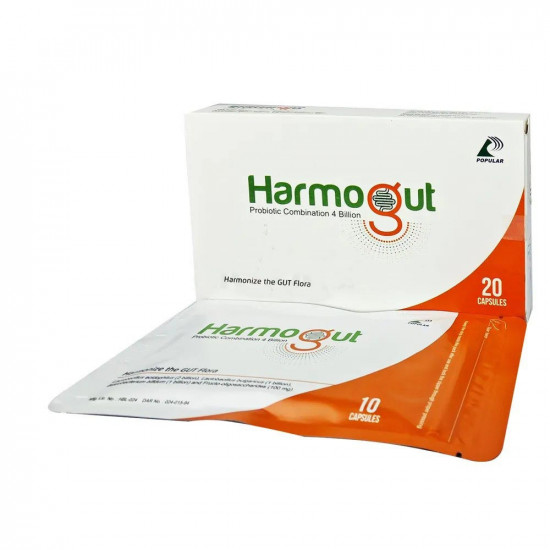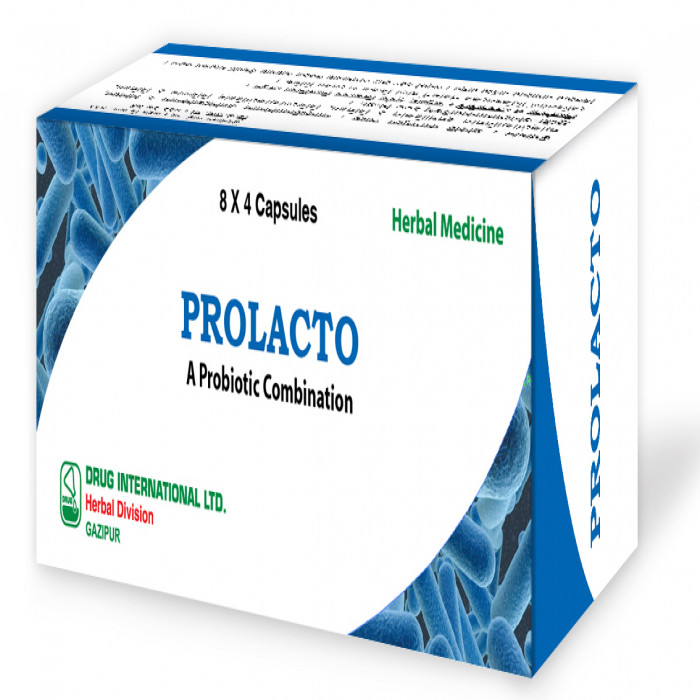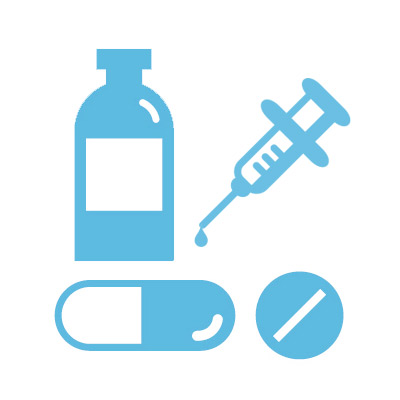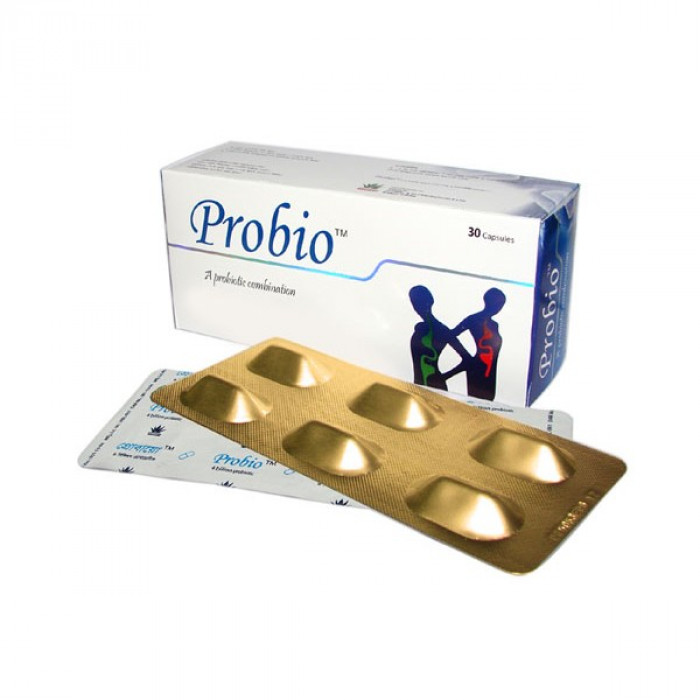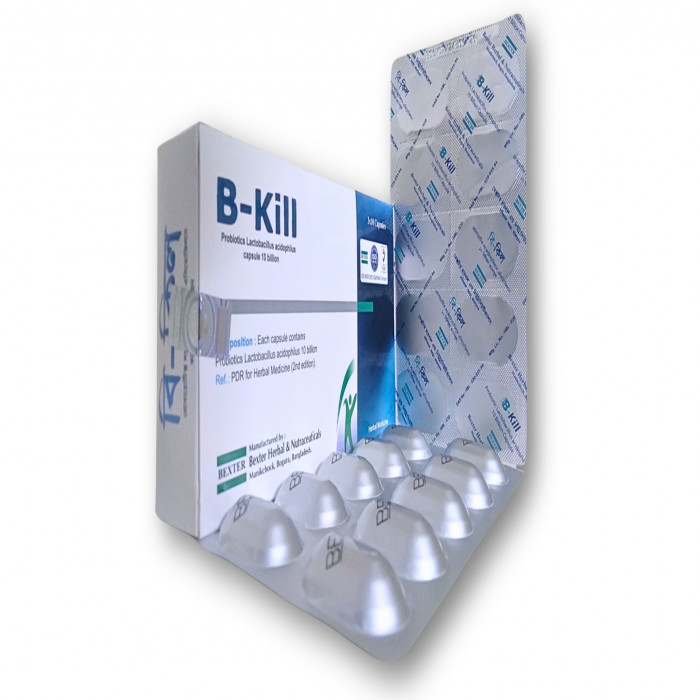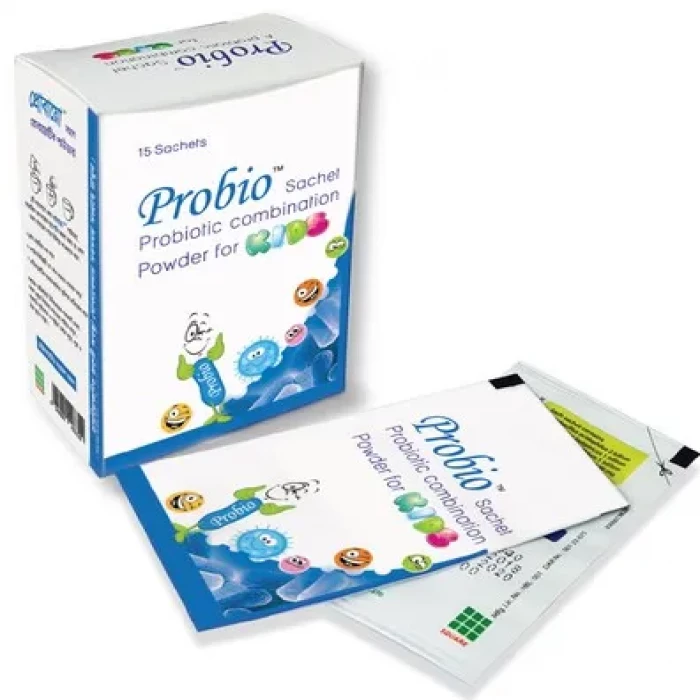
✔ 100% Authentic Product
👁️ Currently Viewing 5103
Probio Oral Powder (15 Sachet)
Probiotic Combination 4 Billion formulations are rich in beneficial live bacteria. It generates spores during its reproductive life cycle which makes it robust unlike other probiotics and withstands extreme environments. Probio Capsule is very useful for the digestive system.
Discount
Price: ৳ 356
MRP:
৳
375
5%
Off

100% Genuine Products, Guaranteed

Safe & Secure Payments, Always

Fast, Secure & Efficient Delivery

Proper Packaging
 Cash on Delivery - All over Bangladesh
Cash on Delivery - All over Bangladesh Regular Delivery - 12-24 Hours, Dhaka City* Charge Tk.39-59
Regular Delivery - 12-24 Hours, Dhaka City* Charge Tk.39-59 Regular Delivery - 24-48 Hours, Other Cities* Charge Tk.99-110
Regular Delivery - 24-48 Hours, Other Cities* Charge Tk.99-110
 ফ্রি ডেলিভারিঃ - ৯৯৯ টাকা+ অর্ডারে, ঢাকা
শহরে
ফ্রি ডেলিভারিঃ - ৯৯৯ টাকা+ অর্ডারে, ঢাকা
শহরে ফ্রি ডেলিভারিঃ - ২৯৯৯ টাকা+ অর্ডারে, ঢাকার
বাহিরে
ফ্রি ডেলিভারিঃ - ২৯৯৯ টাকা+ অর্ডারে, ঢাকার
বাহিরে
100% Genuine Products, Guaranteed
Safe & Secure Payments, Always
Fast, Secure & Efficient Delivery
Proper Packaging
 Cash on Delivery - All over Bangladesh
Cash on Delivery - All over Bangladesh Regular Delivery - 12-24 Hours, Dhaka City* Charge Tk.39-59
Regular Delivery - 12-24 Hours, Dhaka City* Charge Tk.39-59 Regular Delivery - 24-48 Hours, Other Cities* Charge Tk.99-110
Regular Delivery - 24-48 Hours, Other Cities* Charge Tk.99-110 ফ্রি ডেলিভারিঃ - ৯৯৯ টাকা+ অর্ডারে, ঢাকা
শহরে
ফ্রি ডেলিভারিঃ - ৯৯৯ টাকা+ অর্ডারে, ঢাকা
শহরে ফ্রি ডেলিভারিঃ - ২৯৯৯ টাকা+ অর্ডারে, ঢাকার
বাহিরে
ফ্রি ডেলিভারিঃ - ২৯৯৯ টাকা+ অর্ডারে, ঢাকার
বাহিরে
✅ Description:
Probio Capsule is a Dietary Supplement formulated with probiotics and prebiotics to support your digestive health. Probiotics support healthy digestion, nutrient absorption, and immune function. It may help prevent the growth of harmful bacteria in the gut. It may also help relieve occasional gas, constipation, and irritable bowel syndrome.
✔️ Each Sachet contains-
- Lactobacillus acidophilus (2 billion)
- Lactobacillus bulgaricus (1 billion)
- Bifidobacterium bifidum (1 billion) is a 4 billion probiotic combination and
- Fructo-oligosaccharides (100 mg).
✔️ Uses of Probio Capsule
Probiotic Sachet is used for the treatment, control, prevention, & improvement of the following diseases, conditions and symptoms:
- Indigestion
- Bowel Problems
- Eczema
- Vaginal Yeast Infections
- Lactose Intolerance
- Urinary Tract Infections
- Acute Diarrhea
- Depression
- Inflammatory Bowel Disease
- Traveler's Diarrhea
- Antibiotic Associated Diarrhea
- Aids
- Constipation
- High Cholesterol Levels
- Diarrhea
- Rotavirus Diarrhea In Children
- Diarrhea Associated With Using Antibiotics
- Bacterial Infections
- Immunity
- Bacterial Vaginosis
- Irritable Bowel Syndrome
- Necrotizing Enterocolitis In Neonates
- Ventilator-Associated Pneumonia
✔️ How does Probio Capsule work?
Probiotics have been shown to reduce experimental and human gastrointestinal inflammation (human inflammatory bowel disease) through their effects on epithelial cell function, including epithelial cell barrier function, epithelial cytokine secretion, and antibacterial effects related to epithelial layer colonization in recent studies.
✔️ Side Effects of Probio Capsule
These side effects are possible but do not always occur. Some of the side effects may be rare but serious. Consult your doctor if you observe any of the following side effects, especially if they do not go away.
- Hives
- Difficulty In Breathing
- Swelling Of Face
- Stomach Bloating Or Discomfort
- Occasional Flatulence
- Seldom Allergic Reaction
✔️ Key Benefits:
- Inhibiting the growth of bad bacteria and minimizing the death of good bacteria.
- Reducing the excessive secretion of water and electrolytes in the gut.
- Increasing bowel mass and promoting the growth of gut-friendly bacteria.
- Suppressing or killing harmful bacterial growth.
- Inhibiting the growth of bacteria.
- Improving digestion and restoring normal flora.
- Inhibiting the growth of bad bacteria and minimizing the death of good bacteria.
✔️ Indications of Probio Capsule
This can be seen in the following examples:
- Diarrhea
- Anxiety in the stomach
- Lactose intolerance is a condition in which a person is unable to digest
- Infection of the vaginal canal
- Diarrhea caused by antibiotics
✔️ Pharmacology
Probiotics are living microorganisms, such as Lactobacillus species, Bifidobacterium species, and yeasts, that can have a beneficial impact on the host when consumed by improving the balance of the intestinal microflora. These microorganisms are naturally present in various foods, including dairy, grains, meat, and fish, and even in the human and animal intestines, mouths, and vaginas.
Lactobacillus acidophilus is a specific bacteria belonging to the Lactobacillus genus. Its name derives from "lacto" (referring to milk), "bacillus" (rod-like shape), and "acidophilus" (acid-loving). L. acidophilus occurs naturally in a variety of foods and is commonly found in the human and animal intestines, mouths, and vaginas. These types of beneficial bacteria help maintain a healthy balance by protecting against harmful organisms.
Lactobacillus bulgaricus, on the other hand, is one of the bacteria used in the production of yogurt. It was first identified by Bulgarian doctor Stamen Grigorov in 1905 and is named after Bulgaria. L. bulgaricus is a gram-positive rod-shaped bacterium that does not have motility or spore-forming ability. It thrives on milk and produces lactic acid, which contributes to the preservation of milk. This bacterium also helps break down lactose, making it beneficial for individuals with lactose intolerance. Additionally, during the fermentation of milk, L. bulgaricus produces acetaldehyde, which gives yogurt its characteristic aroma.
Bifidobacteria are naturally found in the human and animal colon. They are particularly abundant in newborns, especially those who are breastfed. Bifidobacteria were first isolated from the feces of breast-fed infants. These gram-positive anaerobic bacteria are non-motile, do not form spores, and are catalase-negative. They are named "bifidobacteria" because they often appear in a "Y"-shaped or bifid form. Currently, around 30 species of bifidobacteria have been identified.
Overall, these different species of bacteria play important roles in maintaining a healthy gut microbiota, and their consumption as probiotics has been associated with various health benefits.
✔️ Dosage & Administration of Probio Capsule
It is important to follow the instructions provided by healthcare professionals when taking any medication, including probiotics in sachet form. Here are some general guidelines that may apply:
- Completing the entire course: To ensure the best results, it is typically recommended to complete the entire course of the probiotic sachet without missing any doses. This helps to maintain a consistent presence of beneficial bacteria in the gut.
- Mixing with milk or water: The granules in the probiotic sachet can be mixed with a glass of milk or water. Stir the mixture properly to ensure the granules are dissolved or well mixed. Once prepared, it is generally recommended to consume the mixture immediately.
- Taking with or without food: The sachet can usually be taken with or without food. However, taking it with food may be more beneficial, as it can help reduce the likelihood of experiencing an upset stomach or digestive discomfort. If there are specific instructions from your healthcare professional regarding the timing of consumption of food, it is important to follow their advice.
- Following the doctor's advice: It is important to take the probiotic sachet according to the advice and instructions provided by your doctor. They may provide specific recommendations based on your condition, medical history, and any other medications you may be taking.
It's worth noting that the instructions for probiotic use may vary depending on the specific product and brand. Therefore, it is important to carefully read the product packaging and consult with your healthcare professional for personalized instructions.
Remember to store the probiotic sachets according to the recommended storage instructions, such as keeping them in a cool, dry place, away from direct sunlight or excessive heat.
If you have any questions or concerns about the use of the probiotic sachet, it is always advisable to consult with your healthcare professional for clarification and guidance.
✔️ Interaction
None of them are well-documented.
✔️ Contraindications
The use of probiotics may not be advised in certain situations, including patients at risk of opportunistic infections and those with severely damaged gastrointestinal tracts. Here are some important considerations:
Patients at risk of opportunistic infections: Individuals with compromised immune systems, such as those undergoing immunosuppressive therapy or with HIV/AIDS, may be at increased risk of developing opportunistic infections. Probiotics, particularly those containing live bacteria, may pose a potential risk in these individuals, as the introduction of additional microorganisms could lead to infection. It is crucial for such patients to consult with their healthcare provider before using probiotics.
Severely damaged gastrointestinal tracts: In cases where the gastrointestinal tract is severely damaged, such as in patients with acute pancreatitis, perforated bowel, or other serious gastrointestinal conditions, the use of probiotics may not be recommended. The introduction of live microorganisms in these situations could potentially worsen the condition or lead to infections. Healthcare professionals should evaluate the specific circumstances and determine the appropriateness of probiotic use on a case-by-case basis.
✔️ Pregnancy & Lactation
Probiotics are generally considered safe for use during pregnancy and are unlikely to reach the systemic circulation of the fetus. The majority of probiotics stay within the gastrointestinal tract and do not cross the placental barrier. As a result, they are unlikely to cause harm to the developing fetus. However, it's always important to consult with your healthcare provider before taking any supplements or medications, including probiotics, during pregnancy to ensure individualized recommendations based on your specific situation.
Regarding breastfeeding, while probiotics are generally considered safe, their transfer into breast milk can vary depending on the specific strains and formulations. Some studies suggest that certain strains of probiotics may be found in breast milk, while others indicate minimal transfer. However, the overall consensus is that the transfer of probiotics into breast milk is limited. It is still advisable to consult with your healthcare provider for guidance on the use of probiotics while breastfeeding.
Every individual is unique, and the effects of probiotics can differ. Therefore, it's essential to discuss any concerns or questions you may have about probiotics and their use during pregnancy or breastfeeding with your healthcare provider. They will be able to provide you with the most relevant and personalized information based on your specific circumstances.
✔️ Precautions & Warnings
Before using any medication, including the specific drug you're referring to, it is important to consult with a healthcare professional and follow their guidance. They will consider your individual medical history, current medications, allergies, and any pre-existing conditions or health concerns you may have. Here are some general counseling points that may be relevant:
- Children: The use of medications in children should be approached with caution and under the guidance of a healthcare professional. Dosage and safety considerations may vary based on the child's age, weight, and specific condition. It is important to follow the doctor's instructions or the directions provided on the product label.
- Dehydrated children: Dehydration can affect the body's response to medication. If a child is dehydrated, it is important to address the dehydration and consult with a healthcare professional regarding the use of any medications.
- Allergies: If you have a known allergy to the specific drug or any of its ingredients, it is important to avoid taking it. Inform your doctor about your allergies before starting any new medication.
- Drug interactions: Certain medications may interact with one another, potentially affecting their effectiveness or causing unwanted side effects. It is important to inform your doctor about all the medications you are currently taking, including over-the-counter products, vitamins, and herbal supplements.
- Short bowel syndrome or weak immune system: Individuals with short bowel syndrome or a weak immune system may have specific considerations when it comes to medication use. It is important to discuss your condition with your healthcare professional to ensure the appropriate use of medications.
- Pregnancy or breastfeeding: If you are pregnant or breastfeeding, it is important to inform your healthcare professional before taking any medications. Certain medications may not be safe during pregnancy or while breastfeeding, and alternative options or precautions may need to be considered.
✔️ Storage Conditions
Different types of probiotics may have different storage needs. Some may require refrigeration while others should not be refrigerated. Check the product package for instructions on how to store your product. If you have any questions about storage, ask your pharmacist. Keep all medications away from children and pets.
⚠️Disclaimer:
At ePharma, we’re committed to providing accurate and accessible health information. However, all content is intended for informational purposes only and should not replace medical advice from a qualified physician. Please consult your healthcare provider for personalized guidance. We aim to support, not substitute, the doctor-patient relationship.




